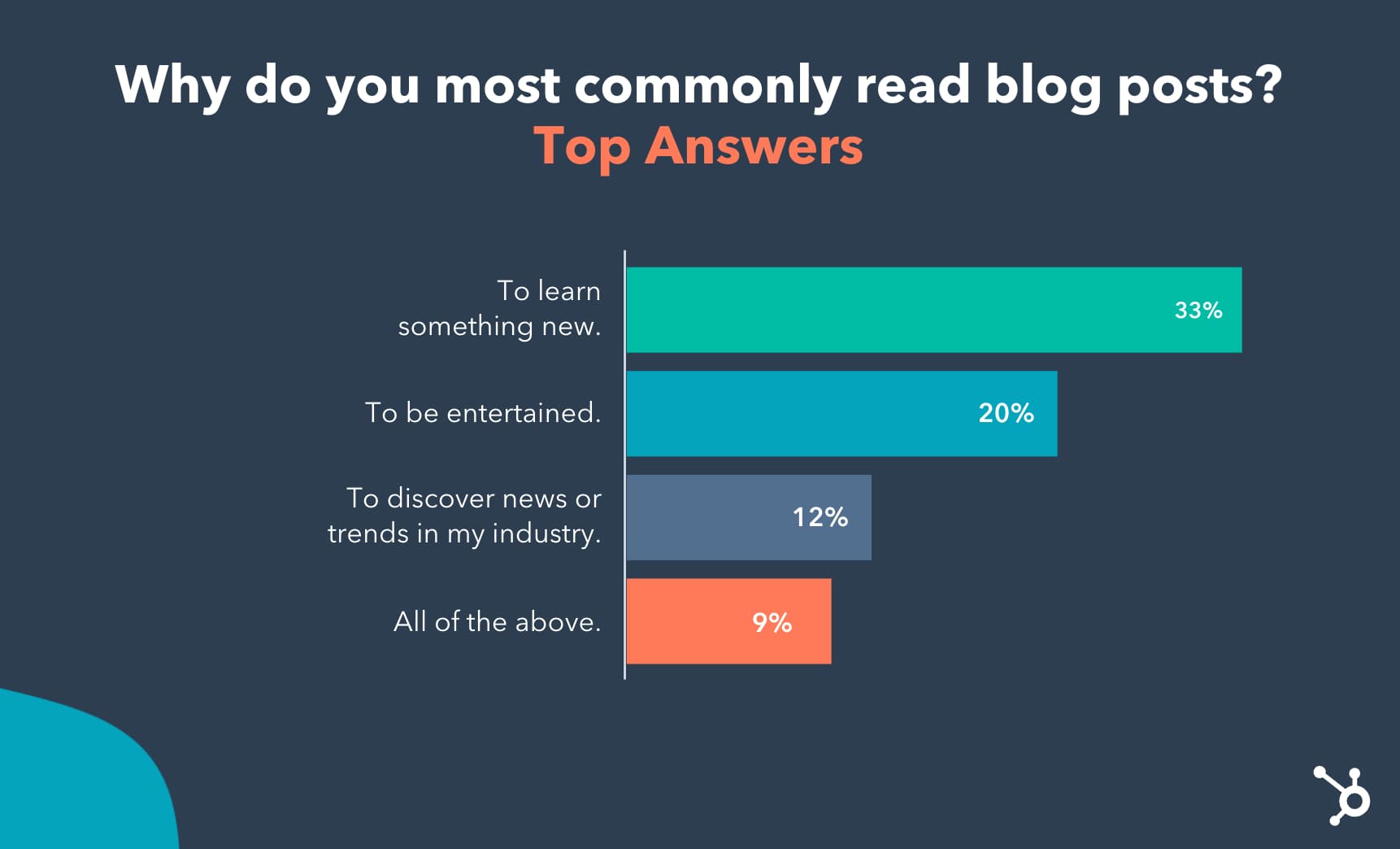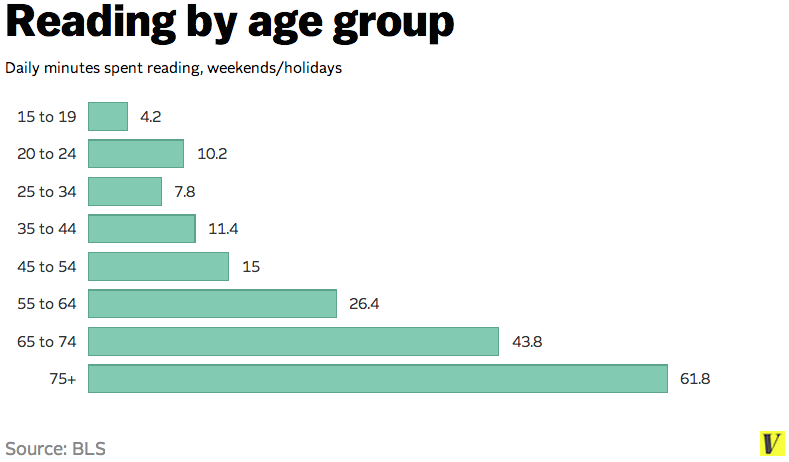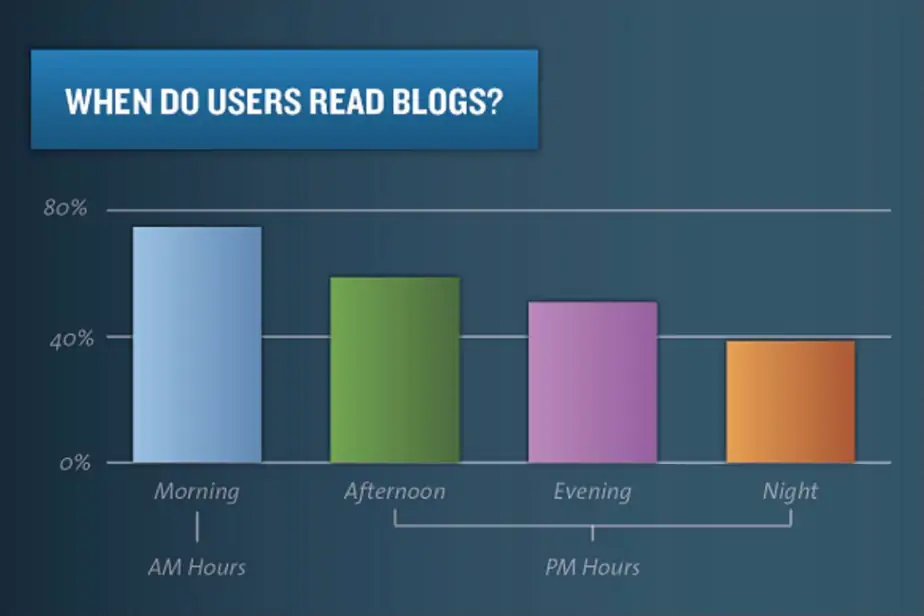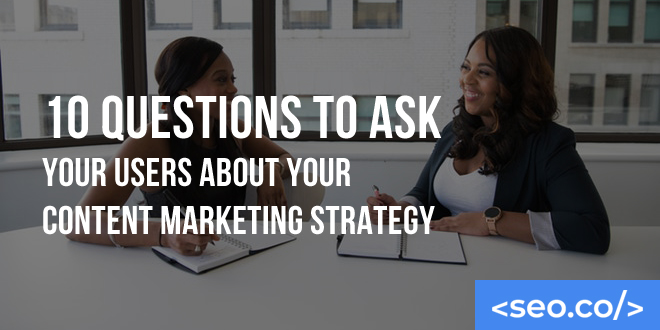View content marketing strategies aren’t something to just post and forget about—they are living entities that must be nurtured and improved over time.
Audience tastes, competition conditions, and multiple other factors will evolve over the course of your regular posts, and eventually, you’ll need to either adjust your campaign or watch it succumb to irrelevance and disinterest.
Fortunately, there are many ways to gauge the health of your campaign and scout for potential improvements to make.
One of the best ways to do this is through user surveys, given to your regular readers to measure and analyze their views of your current content efforts.
Content marketing is a type of marketing that involves creating and sharing content in order to promote a product or service online. This content consumption can take many different forms, including blog posts, articles, videos, infographics, and more. One of the key benefits of content marketing is that it can help to build relationships with potential and current customers. By providing valuable content, businesses can create an audience of engaged followers who are more likely to purchase their products or use their services. Additionally, types of content marketing can be an effective way to drive traffic to a website or promote a brand through social media marketing. When executed correctly, Use content marketing can be a powerful tool for any business.
Any business that wants to succeed needs to have an long term effective content marketing strategy. This is because using content marketing is one of the most efficient and effective ways to reach out to potential customers. By creating and sharing high-quality content, businesses can attract attention and build trust with their audience. In addition, effective content marketing can help businesses to boost their search engine ranking and drive traffic to their website. As a result, there is no doubting the importance of content marketing for any business that wants to succeed.
Through their answers, you’ll be able to determine what’s next for your content marketing strategy, and you’ll be able to better engage your audience as a result.
Ask these questions of your users:
Table of Contents
How often do you read our blog?
This is a critical question that can reveal how engaging your blog is compared to how engaging you think it is.
Of course, if you have Google Analytics installed, you should be able to easily tell how many repeat readers you have, but calling direct attention to this can elicit an honest, individual response.
If you include a follow-up question as simple as “why?” you might also get a first glimpse into what is motivating the individual to read your blog frequently or infrequently. Be aware that your results may skew slightly to more active readers, since they’ll have more opportunities to see your survey to begin with.
Why do you read our blog?
This question will help divide your audience into several segments, which you can use to qualify some of the other points of data throughout your survey. For example, one individual who reads your blog for casual entertainment might have different preferences than one who reads your blog for raw information.

Understanding the difference can help you cater to one type of individual over the other (if you determine one to be more popular or more valuable).
Alternatively, you can construct different segments of your blog and cater to each segment of your audience individually. One example might be age:

How did you find our blog?
This is a perfect question to figure out which outlets are making the greatest impact on growing your blog traffic.
Once again, Google Analytic or similar tracking programs might be able to tell you broader, more objective statistics, but you can use each individual’s answer to this question to qualify the answers to the other questions about content marketing strategy.
For example, users who found you through a guest blog on an industry news site might appreciate different subjects than users who found you through a Google search.
You can then use this information to set up different first place landing pages, or segment your blog to different inbound streams.
Where did you usually hear about our new posts?
With this question, you’ll be able to determine the most effective syndication platform for your posts.
Timing (dayparting) could play a factor in when and how they found out about a new post.

Some possible answers might include visiting the blog regularly, seeing them published on social media, finding them through social bookmarks, or seeing someone talk about them.
The answers you don’t get to this question will be more informative than the ones you do get. If you notice any of your syndication channels conspicuously absent from mention, it’s time to do a thorough audit of that platform’s effectiveness in the grand scheme of your effective content marketing.
Have you ever made a purchase with us?
This is a revealing question about the effectiveness of your content marketing strategy at producing conversions.
There are ways to use objective data to tie your total number of conversions to your common content marketing efforts, but nothing beats a direct question.
First, you’ll get an idea of what type of reader frequently makes purchases—for example, is this the type of user who prefers informative posts? Is this the type of user who finds you on social media? As a result, you’ll be able to fine-tune your strategy to focus more on the users who are liable to make more frequent purchases.
What is the best topic you’ve seen covered?
Odds are, you have a handful of “landmark” or “pillar” content pieces that have made lasting impressions with your audience.
This question is designed to help you figure out what those content marketing success pieces are. Collect the information from all your users, and start analyzing the characteristics of your most commonly cited works.
To create content strategy there will never be a perfect recipe, but if you understand what content creation features are the most impressive for your users, you can customize your content marketing to include more of them.
What topics have you avoided reading?
This is the opposite of the previous question and can help you understand why some topics fail to impress your users.
Weed out the topic types that seem to falter. You may suspect that a specific category or post style fails to generate attention. Still, this question can help you figure out why—mainly if you include a follow-up question that requests more reasoning behind their answer.
How would you characterize our brand?
There are two important things you’ll learn from this question. First, you’ll get a solid idea of your brand’s reputation on the web, and second, you’ll learn how good your blog is at carrying a relevant, appropriate brand voice.
Don’t stress over a few outliers; you’re bound to get a handful of people who simply don’t understand the brand. But if you start to see a trend of people failing to understand your brand’s intentions and personality, you might want to revisit your brand voice.
What would you like to see more of in the future?
This is one of the most straightforward and informative questions you can ask. It’s simple, to the point, and it will help guide the future direction of your campaign.
It’s an open-ended question, so you might get a few non-answers, but for the most part your audience will be more than willing to help you find great ideas for your future blog posts.
Take note of them, especially if they sync up with the “landmark” pieces you uncovered earlier, and adjust your common content marketing plan accordingly.
In today’s competitive online landscape, quality content marketing is more important than ever. Search engines are constantly evolving and getting better at detecting and rewarding relevant, fresh content creation. By creating quality content targeted to your audience and promoting it through effective channels, search engine optimization can help ensure that your website or blog ranks highly in search engine results pages (SERPs), driving more traffic to your site. In addition, a strong content marketing strategy can help you build a loyal following of readers who will return to your site for new and exciting information. Investing in quality content can set your website or blog apart from millions of others vying for attention online.
What other blogs do you read regularly?
Figure out where else your target audience is going.
Try to figure out what elements of the other sites and social media are attracting your target audience.
What makes other sites the best marketing blogs?
You can theoretically analyze each individual’s profile, and uncover trends that illuminate what characteristics of your blog make it popular in a given space.
Audience engagement is everything, so if you’re trying to give your users exactly what they want, why not ask them exactly what they want directly? Finding the answers to these ten questions can help you shape the course of your content marketing strategy, weed out any weaknesses, and increase brand loyalty for months to come. Conduct these strategic surveys often to stay ahead of the curve and anticipate your audience’s needs.
Your content marketing program is best supplemented by link building and advanced SEO. For agencies, we provide white label SEO. Get in touch today!
Tim holds expertise in building and scaling sales operations, helping companies increase revenue efficiency and drive growth from websites and sales teams.
When he's not working, Tim enjoys playing a few rounds of disc golf, running, and spending time with his wife and family on the beach...preferably in Hawaii.
Over the years he's written for publications like Forbes, Entrepreneur, Marketing Land, Search Engine Journal, ReadWrite and other highly respected online publications. Connect with Tim on Linkedin & Twitter.
- Pros & Cons of Using Indian Link Building Services - April 14, 2025
- Search Everywhere Optimization: The New and Improved SEO - April 14, 2025
- Best Link Building Strategies for SEO in 2025 - April 1, 2025



